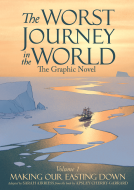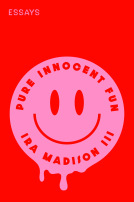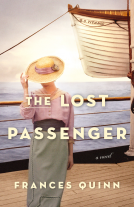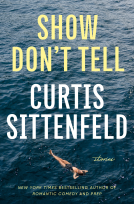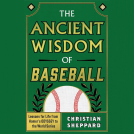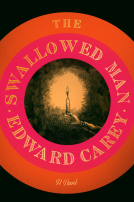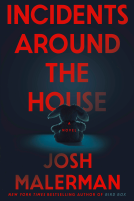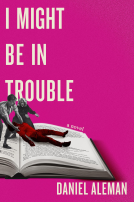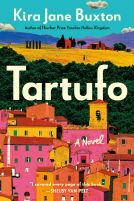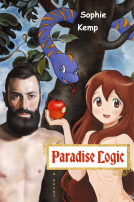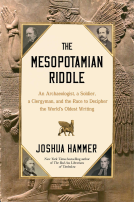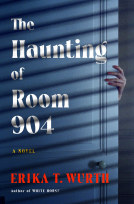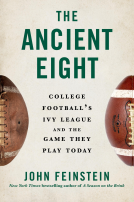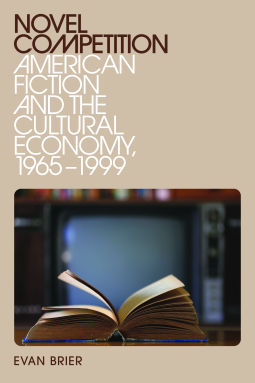
Novel Competition
American Fiction and the Cultural Economy, 1965-1999
by Evan Brier
This title was previously available on NetGalley and is now archived.
Send NetGalley books directly to your Kindle or Kindle app
1
To read on a Kindle or Kindle app, please add kindle@netgalley.com as an approved email address to receive files in your Amazon account. Click here for step-by-step instructions.
2
Also find your Kindle email address within your Amazon account, and enter it here.
Pub Date Apr 16 2024 | Archive Date Apr 16 2024
University of Iowa Press | University Of Iowa Press
Talking about this book? Use #NovelCompetition #NetGalley. More hashtag tips!
Description
LITERARY CRITICISM / SCHOLARLY
Novel Competition describes the literary and institutional struggle to make American novels matter between 1965 and 1999. As corporations took over the book business, Hollywood movies, popular music, and other forms of mass-produced culture competed with novels as never before for a form of prestige that had mostly been attached to novels in previous decades. In the context of this competition, developments like the emergence of Rolling Stone magazine, regional publishers, Black studies programs, and “New Hollywood” became key events in the life of the American novel. Novels by Truman Capote, Ann Beattie, Toni Cade Bambara, Cynthia Ozick, and Larry McMurtry—among many others—are recast as prescient reports on, and formal responses to, a world suddenly less hospitable to old claims about the novel’s value. This book brings to light the story of the novel’s perceived decline and the surprising ways American fiction transformed in its wake.
Advance Praise
“Novel Competition is a beautifully written institutional history of the literary novel in the United States from 1965 to 1999. Placing the novel in a larger cultural field—in competition with journalism, popular music, and films for cultural prestige—Brier illuminates not only novels, but their readers, critics, editors, publishers, and booksellers.”—Erin A. Smith, University of Texas at Dallas
“Novel Competition confronts a fascinating and important subject: an examination of how the novel came to matter differently over the last third of the twentieth century. This decline is something that scholars of the novel have bemoaned for some time, and Brier offers a useful approach to making sense of it without resorting to well-trod and over-simplified answers. It is an engaging and important book.”—Emily Johansen, author, Beyond Safety: Risk, Cosmopolitanism, and the Neoliberal Contemporary Life
“As a longtime Evan Brier fan, I’ve been eagerly waiting this book, his account of the American novel’s response to its declining fortunes. Brier dazzles with a virtuosic reading of Truman Capote’s In Cold Blood that takes us through the culture of The New Yorker, the Kansas literati, and the first stirrings of publishing’s conglomeration. He delivers an extraordinary investigation into Toni Morrison’s career as an editor—culminating in Toni Cade Bambara’s The Salt Eaters—and her publication of The Black Book. We follow Philip Roth to Eastern Europe and Cynthia Ozick’s and Saul Bellow’s characters into diaspora. Minimalism, rock and roll, New Hollywood, Rushdie’s fatwa, the American West—an astounding account of Larry McMurtry’s career—the memoir boom. Brier touches it all. Brier quietly transcends the limitations of dominant norms in the practices of literary history and the sociology of literature to give us an nth-dimensional view of American literature since 1965: how the novel became residual. He tells us what it means to believe—or disbelieve—in the power of fiction. It’s no less than thrilling.”—Dan Sinykin, author, Big Fiction: How Conglomeration Changed the Publishing Industry and American Literature
Available Editions
| EDITION | Other Format |
| ISBN | 9781609389390 |
| PRICE | $85.00 (USD) |
| PAGES | 254 |
Links
Available on NetGalley
Featured Reviews
As we skid into the first quarter of the 21st century, reading seems to have regained its foothold in the modern psyche. This book engages with the struggle of literature and the publishing world to maintain its niche in the face of mass media and television in particular. Well-researched and engaging, this was wonderful.
Readers who liked this book also liked:
Apsley Cherry-Garrard, Sarah Airriess
Biographies & Memoirs, Comics, Graphic Novels, Manga, History
Patti Callahan Henry
General Fiction (Adult), Historical Fiction, Women's Fiction
